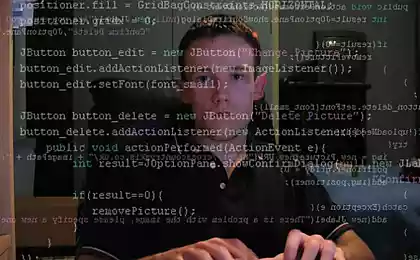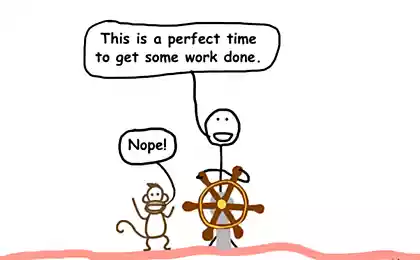1405
Can I become a programmer after 30?

Subject in the headline, recently discussed in an IT-Belarusian online edition. However, there was a question whether it is possible to become a programmer after 40-ka. The author, consisting of several parts, began to describe his way of journalists, programmers and then compiled all the lessons PHP «for the little ones" and stepped away from the topic. But the materials traced the idea that quit journalism and programming it to do so and failed. It follows from this that after 40 years become a programmer if possible, is very difficult. Let's try to reduce the minimum age of 5 - 10 years.
I close this subject, because I myself paid for bread journalistic work and also wants to be a professional programmer. Regardless of the age. And in light of recent trends in IT (skills shortages) louder sound ideas on retraining of experts in software development in other industries. So, I do not hesitate to say that this topic is of national importance. Those wishing to join me deal with this issue by asking the cat.
I note that the desire to become a programmer personally I have not sucked from the finger (and not from the thought "they get 100500+ money, too, so I want"). This is quite a conscious desire. In my heart I think of myself as a programmer for a long time. But until now, the programming was not my main profession. I hope (probably in vain) that all who are in middle age thinking of the profession programmer, are not guided by high salaries, and self-actualization, or similar considerations moral principles. What other advantages carries a profession programmer?
Pros h4>
From already mentioned: h5>
- Self-realization. If a man has not found itself in the fact that he is doing now, it is likely, though not wholly, that programming is an area of human activity, from which he can receive moral satisfaction. Here, of course, it raises the question of why a person could not get satisfaction from their work before, and whether he is able even to enjoy the work. But this is a very broad topic, which made the scope of this article.
- High income. Well, this is clear. According to statistics - IT sphere has one of the highest levels of remuneration. And so things are not only in the former USSR, but also in other parts of the globe. In addition, the situation in the foreseeable future probably will not change for the worse.
What else did not say: h5>
- Easy work. Yes, programmer or web designer can work remotely, can work on a flexible schedule, which can not be said of many other professions.
- Ability to leave the country. Our pros are highly appreciated abroad. But accountant, lawyer or economist with our diploma work on a specialty abroad find problematic. For those who want to leave the country, a career in the IT it gives you a chance.
- These are the factors that make you think about what to take and become a programmer. But, of course, it is not so simple. Otherwise, for a long time to cast all his work and went to write the code. Then the personnel shortage in the IT-sphere would not be.
And what's the problem? h4>
As an adult, it is not easy to change profession. When a person is just entering adulthood, and is faced with the necessity of choosing a profession, it is often not clear is what will be his job after graduation. Sometimes the choice of profession affect parents, environment, fashion finally (in the 90s it was fashionable to have an economic specialty, here we have an overabundance of economists of all stripes). Becoming older person begins to better understand the life and clearly understand their tastes and desires. With age often comes an understanding that your job, and the profession in general - boredom death. A 17-year-old boys do not, but there is one important virtue: he is young. But becoming mature, not everyone dares to change his profession, because intuition says that in this way will be faced with difficulties. At the "reincarnation" in the programmer, after 30 years, the main challenges are:
- By 30 - 35 years most people have a family / children, and thus risk becoming harder than 20 years: on their shoulders the responsibility not only for themselves. Like it or not, but not the fact that a new profession will immediately provide you is not worse than the former. You may have to settle for less, while rack up experience.
- The employer wants (used?) To see as junior'a green kid, student 2 - 3 courses, not bearded guy that age is more suited to position of leadership, and in the knowledge only to junior'a and hold out (and then not always).
- In adulthood, not everyone will be able to transcend itself and get back on the college. Most people after 30 have some experience in any profession, accustomed to the fact that they are seen as professionals and they are not morally ready to say (even to himself): "I do not know." In a word - hard to learn. This will not be considered a negative change of profession in adulthood as the "brains are not the same." Brains in 35 years, if the person did not give them covered with dust, still running about-ho-ho! Many young will give a head start! Yes, and acquired programming profession suggests that the brain must be in place.
- «colleagues laughed at." This point resonates with the previous two. Yet it is a separate issue and for the author of these lines, perhaps the most painful. I find it difficult to accept the fact that young people around me, who knows as much as I can. And if we have to deal with them, to put it mildly, "incomprehension" bearded guy who has decided to become a programmer, and following from this podkovyrkoy ...
- The fear of disappointment. What if a new profession pall over time / tired? This idea also does not give a person who is over 30, feel free to step into a new profession.
I would like to know the opinion of habrapolzovateley on how to become a real programmer after 30 - 35 years.
Source: habrahabr.ru/post/204168/























